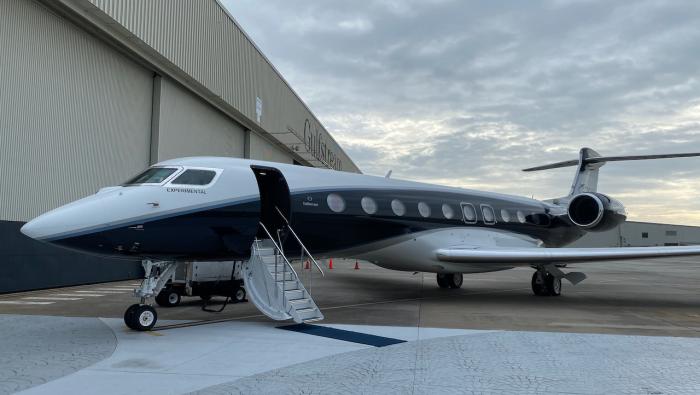Airbus confirmed Wednesday that a Pratt & Whitney PW1100G turbofan on one its A320neo flight-test aircraft suffered “minor damage” following hot-weather trials in Al Ain in the United Arab Emirates. The company stressed, however, that the incident would not affect certification schedules and plans to deliver the first Pratt-powered airplane to Qatar Airways by the end of the year.
“The Pratt & Whitney-powered A320neo flight-test aircraft MSN 6101 has completed the hot weather campaign successfully,” said Airbus in a written statement to AIN. “However after the last flight we had findings in the engine. We are currently analyzing the situation in close cooperation with our partner, Pratt & Whitney.
“We are confident with our partner Pratt & Whitney to resume flight tests of MSN 6101 soon. Our target to start the A320neo delivery stream in 2015 remains unchanged.”
Asked for comment on the status of the engine, Pratt & Whitney deferred to Airbus.
News of the latest incident comes some two months after MSN6101 returned to the air following discovery of a manufacturing defect in a 10-inch-diameter retaining ring in the powerplant’s combustor section. A resulting three-month “pause” in flying forced the manufacturer to revise testing dates and modify the A320neo flight-test program to accommodate the changes. For example, an A320neo powered with alternative CFM International Leap-1A engines had to undertake additional work previously earmarked for the GTF-powered A320neos and unrelated to engine systems.
As of October 1, five A320neo flight-test airplanes, two of which the CFM engines power, had accumulated some 868 hours during more than 292 flights. The third Pratt-powered example, MSN 6720, flew for the first time on September 25. Airbus has started using that airplane for function and reliability tests. Meanwhile, the second CFM-powered airplane, MSN 6642, took to the air for the first time on September 29. Airbus has since transferred that airplane from its facilities in Hamburg to Toulouse.







